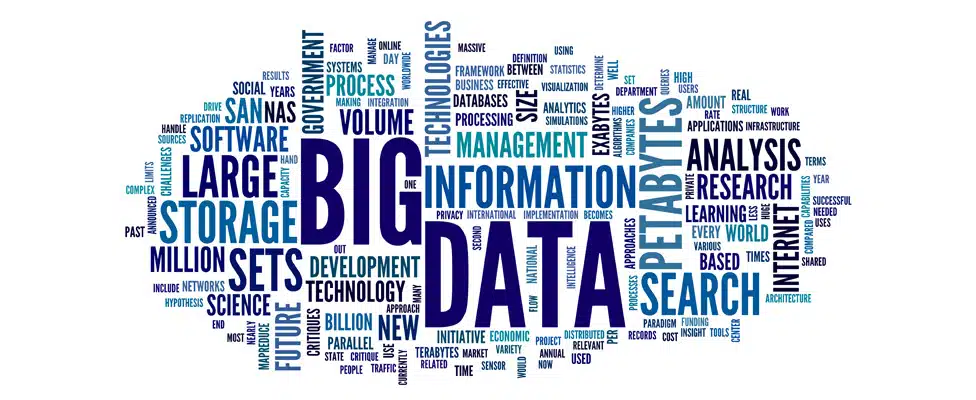Big data is transforming industries at an unprecedented pace, and the fintech job industry is no exception. As we look into 2024, big data’s impact on fintech jobs and innovations continues to grow.
This article dives into the latest trends, technological advancements, and the fintech jobs in high demand, emphasizing the vital role big data plays in shaping the future.
Table of Contents
Integration of AI and Machine Learning
AI and machine learning are now central to fintech’s evolution, driving everything from risk management to customer personalization. Matt Smith, CEO of SteelEye, highlights that “the use of AI has exploded across 2023, especially in financial services.”
An example of this is JPMorgan Chase’s use of AI-driven algorithms to monitor and detect fraudulent transactions. The system analyzes millions of data points in real-time, flagging suspicious activity while reducing false positives.
However, while AI is a powerful tool, it should complement human decision-making rather than replace it. This underscores the need for fintech jobs that blend AI expertise with human oversight, particularly in compliance and fraud detection.
Edge Computing
Edge computing is transforming fintech by enabling real-time data processing right where the data is generated. Founder of Mobile Experts, Joe Madden says that “investments by AWS, AtlasEdge, and others are brewing up a rich soup of business models.” This is an important trend for fintech applications like mobile banking, where milliseconds matter. Companies like Visa and Mastercard have been the first ones to implement edge computing to cut down processing times and provide business intelligence solutions. As a result, fintech jobs focused on optimizing edge computing architectures are in high demand.
Data Lakehouses
Data warehouses have structured data but they lack the flexibility, which is why data lakehouses are becoming the next big thing as they combine the flexibility of data lakes with the structured approach of data warehouses. For instance, Goldman Sachs leveraged a data lakehouse architecture alongside AI to approve and underwrite credit card applications made through the iPhone, which took the Apple Credit Card from zero to USD 50 million in revenue practically overnight. This hybrid solution is particularly beneficial for fintech companies dealing with vast amounts of both structured and unstructured data.
Use cases of data and AI can be found in just about every sector, including how Walmart saved around USD 100 million by using AI and data to improve the efficiency of their supply chains during the Covid pandemic.
The rise of data lakehouses is creating a surge in demand for fintech jobs, particularly for data architects and engineers who can design and manage these complex systems.
Data-as-a-Service (DaaS)
DaaS is rapidly becoming a cornerstone of fintech data management, offering scalable and cost-effective solutions. For instance, Mastercard has adopted DaaS to enhance its fraud detection capabilities by accessing and analyzing vast amounts of external data without needing to invest in extensive infrastructure. This approach allows Mastercard to quickly adapt to emerging threats and provides more accurate fraud prevention.
This trend is opening up fintech jobs that specialize in managing DaaS platforms, with a particular focus on cloud services (The Fintech Times).
Greater Data Diversity
The diversity of data sources is expanding rapidly, incorporating everything from IoT devices to social media. For example, PayPal has begun leveraging data from social media interactions to enhance its fraud detection algorithms, enabling more proactive identification of suspicious activities. Additionally, banks like HSBC are using IoT data from connected devices to offer more personalized financial products, such as insurance plans tailored to the specific behaviors and needs of individual customers. This expansion demands advanced processing techniques and has created a need for specialized fintech jobs that focus on handling and analyzing unstructured data.
Cloud and Hybrid Cloud Platforms
The shift towards cloud and hybrid cloud platforms continues to accelerate, driven by the need for scalable and flexible data solutions. Industry experts emphasize that cloud computing is not just about storage anymore; it’s about agility and efficiency in data processing. This shift is creating a growing number of fintech jobs for cloud architects and engineers who can design and manage these platforms.
Data Governance and Regulation
As data privacy becomes a global concern, fintech companies are under immense pressure to comply with strict regulations. However, if the data sets used to train AI contain inherent biases, this could lead to biased advice being given to clients. This highlights the critical need for fintech jobs focused on data governance and compliance, ensuring that companies not only adhere to regulations but also maintain ethical standards in AI-driven financial services.
In-Demand Fintech Jobs for 2024
Data Scientist:
Data scientists develop algorithms, perform advanced analytics, and build predictive models. Proficiency in Python, R and Machine Learning is a must for data scientists, along with statistical analysis and data visualisation skills. The demand for data scientists continues to be high in the fintech jobs industry as companies seek to make data-driven decisions.
Data Engineer:
Data engineers design, build, and maintain the infrastructure for data generation, storage, and processing. They require expertise in SQL, ETL processes, data warehousing solutions, cloud platforms, and big data tools like Hadoop and Spark. The need for robust data pipelines and the integration of various data sources drive the demand for data engineers in the fintech jobs market.
Machine Learning Engineer:
Machine learning engineers implement machine learning models and algorithms, optimizing them for performance and deploying them into production systems. They need a strong knowledge of machine learning frameworks, programming skills, and an understanding of data structures and algorithms. The growing adoption of AI and machine learning increases the demand for this role in fintech jobs..
Data Analyst:
Data analysts interpret data, analyze results, and provide ongoing reports, transforming data into actionable insights. They need proficiency in statistical tools, data visualization software, and knowledge of business intelligence. The demand for data analysts is steadily increasing as fintech companies rely on data for strategic planning.
Big Data Architect:
Big data architects design and manage big data solutions, ensuring they meet business requirements and align with the overall IT strategy. They require experience with big data technologies, cloud platforms, database management, and architectural frameworks. The complexity and scale of big data projects in fintech necessitate expert planning and execution, driving demand for this role.
Data Governance Specialist:
These specialists establish policies and processes to ensure data accuracy, security, and compliance with regulations. They need knowledge of data privacy laws, data management best practices, and risk management. The increasing focus on data privacy and regulatory compliance boosts the demand for data governance specialists in fintech jobs.
AI Ethicist/Data Privacy Officer:
AI ethicists and data privacy officers ensure that AI and data practices adhere to ethical guidelines and privacy regulations. They need an understanding of data ethics, privacy laws, AI technologies, and policy development. Growing concerns over data privacy and ethical AI use are driving demand for this role in fintech jobs.
Business Intelligence Developer:
BI developers create and manage BI solutions, develop dashboards, and generate reports to support business decision-making. They need expertise in BI tools, SQL, data modeling, and an understanding of business processes. The demand for BI developers is strong as fintech companies increasingly rely on BI for insights and operational efficiencies.
Conclusion
The future of big data is rich with potential, offering new avenues for insight, efficiency, and innovation in the fintech industry. Moreover, the demand for skilled professionals in various big data roles continues to grow, highlighting the importance of expertise in this evolving field. Organizations that can effectively leverage these trends and roles will be well-positioned to thrive in a data-driven future, making fintech jobs an exciting and dynamic career path.

















Recent Comments